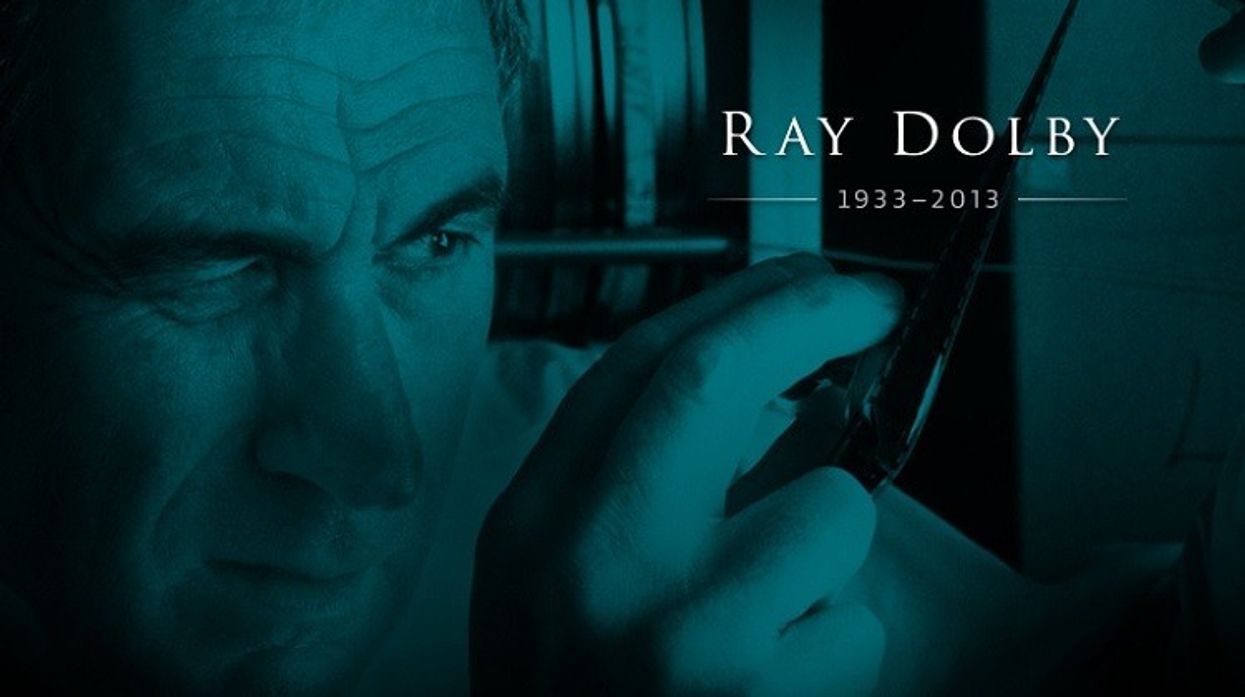A little over a week ago, the audio and filmmaking communities lost a legendary member, Ray Dolby. If audio is equally important as picture in filmmaking, then it stands to reason that Ray Dolby has done more to elevate the craft and enjoyment of film than any other individual in the history of the medium. It's a bold statement, to be sure, but one that makes sense when trying to contextualize his lifetime of extraordinary achievements. Here are just a few of the ways in which Ray Dolby indelibly enriched each and every one of our lives.
First, here is a touching tribute to Ray Dolby from his peers at Dolby Laboratories:
Ray Dolby's contributions to audio are countless. With over 50 patents, there are few corners of the audio industry in which Dolby's technology is not omnipresent. His magnificent contributions to cinema sound, however, can be traced to a few key inventions and advancements, dating back to 1965.
His first major invention was Dolby A, a precursor to his revolutionary noise reduction techniques. Before Dolby Noise Reduction (NR), hiss was a major problem in audio production, and signal to noise ratios were often 1:1 or higher. Here's Mickey Hart of Grateful Dead fame on Dolby NR:
Before Dolby noise reduction, the tape hiss was as loud as the original source signal. We would have to use extreme techniques to even come close to the sound we wanted. It was simply out of the range and design of the magnetic tape of the day. Until Ray's vision.
Dolby's next major innovation came in 1975 with the introduction of Dolby Stereo, which allowed for a four-channel stereo soundtrack to be optically printed onto 35mm release prints. Several major films, most notably Star Wars and Close Encounters of the Third Kind, took full advantage of the new audio format. Here's George Lucas on Dolby's contribution to his film.
Ray's pioneering work in sound played a pivotal role in allowing Star Wars to be the truly immersive experience I had always dreamed it would be.
Seven years later, in 1982, Dolby Surround was introduced. This new format allowed for dual stereo tracks to be simultaneously encoded in consumer video formats such as VHS, thus bringing the home viewing experience to a level never before seen.
In the late 80's, Dolby introduced what some believe to be one of his greatest achievements, Dolby SR (Spectral Recording.) This new form of noise reduction took elements from the Dolby A, B, and C processes, and it quickly became the industry standard as it vastly improved upon the performance of other noise reduction processes.

The brilliance of Dolby didn't stop with sound for cinema, however. Here's a brief recap of some of Dolby's other inventions from Creative Cow's excellent piece on the legacy of Ray Dolby:
Dolby Headphone technology, Dolby E codec for DTV multichannel audio production and distribution, Dolby Pro Logic II, Dolby Virtual Speaker technology, Dolby TrueHD lossless coding for HD video discs, Dolby 3D Digital Cinema, Dolby Axon for 3D voice communication to online games; Dolby Mobile technology for 5.1 channel surround sound on mobile phones; Dolby Surround 7.1 for digital cinemas and, later, streaming media.
To this day, many of the great minds which Ray Dolby fostered are still pioneering audio for cinema and beyond. The latest innovation from Dolby Laboratories, Dolby Atmos, looks to be the most immersive audio experience known to man.
Pretty much any way you look at it, Ray Dolby and his company have changed the way we experience films. From noise reduction, to stereo sound, to immersive surround sound experiences, Dolby has truly pioneered audio in ways to which no other human can lay claim. For that, we will honor and remember him, and his immense legacy, forever.
"To be an inventor, you have to be willing to live with a sense of uncertainty, to work in this darkness and grope towards an answer, to put up with anxiety about whether there is an answer." - Ray Dolby (1933-2013)
What have your experiences been with Dolby's innovations? How has Dolby's work affected your work in the film industry? Let us know in the comments.
Links:
- Remembering Ray Dolby: A Life of Invention -- CreativeCow
- Remembering Ray Dolby - -Dolby Laboratories














